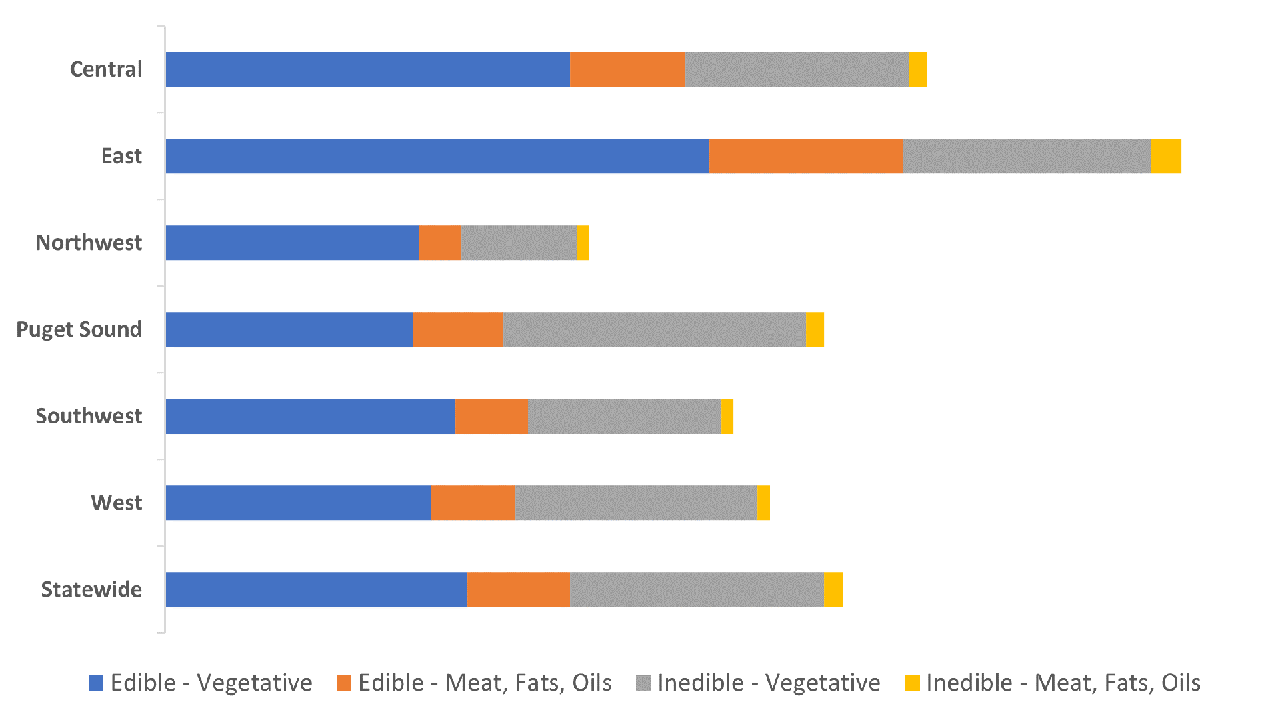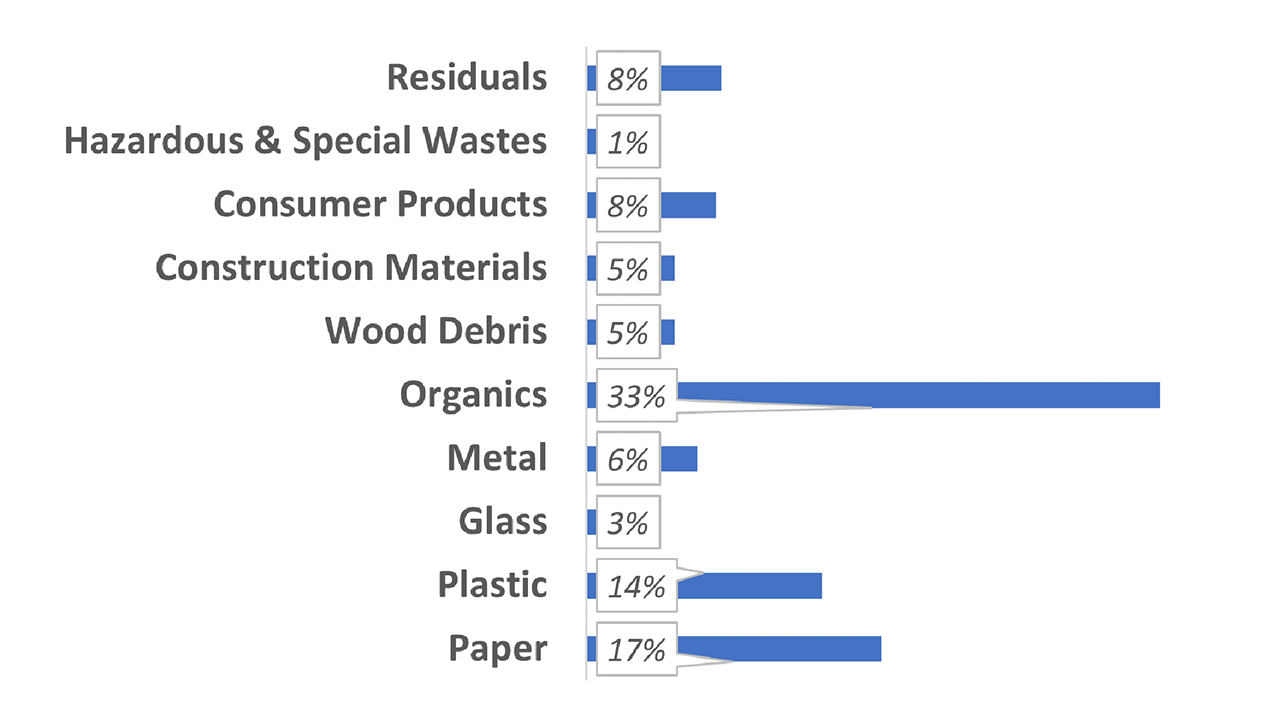
Spokane Leads the State in Food Waste
Kristine Major, Solid Waste Education Coordinator, 509.625.6521
Tuesday, March 7, 2023 at 2:49 p.m.

There are some categories you don’t want to be ahead of the pack in. Food waste is one of them. Eastern Washington, including Spokane, leads the state in per capita amount of food waste thrown away annually.
What kind of food are we throwing away?
- Edible vegetation – this is our highest category
- Inedible vegetation
- Edible food – meats, fats, and oils
- Inedible food – meats, fats, and oils
Residential Food Waste Disposed by Generation Area (per capita)
Waste Characterization results from WA State Dept of Ecology study that took place at Spokane’s Waste to Energy facility in 2020-2021.

As a community, we are leading the state in throwing away uneaten and spoiled food in the trash. Consider ways to cut down on the amount of wasted food in your home. In Spokane, about a third of everything that ends up in the trash is organic material that could have been composted. Much of that is food, which is a shame when so many in our community are facing food insecurity and don’t know when or where their next meal is going to come from.
What else are we throwing away?
Waste Characterization results from WA State Dept of Ecology study that took place at Spokane’s Waste to Energy facility in 2020-2021.

How can we do better?
Here are just a few ideas and resources for you to reduce food waste in Spokane:
- Think green cart before garbage. Yard waste as well as food and food-soiled paper can go in the curbside clean green cart. It is then sent to be commercially composted and returned to the soil. If you don’t have a Clean Green cart, contact MySpokane 311 to subscribe to one. Learn more.
- Plan out your menus for the week and make a shopping list before going to the grocery store. This helps cut down on buying things you don’t need and saves you money.
- Make sure foods you buy last longer. Check that your refrigerator is set to a cold enough temperature and freeze easily-perishable items like bread or leftovers before they go bad.
- Ignore those Best buy, Sell by, and Use by expiration dates. It is impossible for a manufacturer to know exactly when each product is going to go bad.
- Consider donating edible food to a food bank or soup kitchen before it goes bad. That way others will have a chance to enjoy it.
- Start a backyard compost pile. Fruit and vegetable waste can be composted at home along with yard trimmings and leaves.
Learn more tips at TalkTrashSpokane.com.
When food does need to be disposed, there are better places for it to go. Want to learn even more about how food waste is impacting our environment? You can enroll in a free waste education class on the city’s digital learning platform at Solid Waste Courses (learnworlds.com). Check out the “Take a Bite Out of Food Waste” class. It is free and self-paced with lots of good information and suggestions.
More About...
- Clean Green
- Compost
- Expired
- Food
- Fresh
- Green Cart
- Groceries:Shopping
- Grocery List
- Hunger
- Leftovers
- Live
- Reduce
- Shop Smart
- Trash
- Waste
